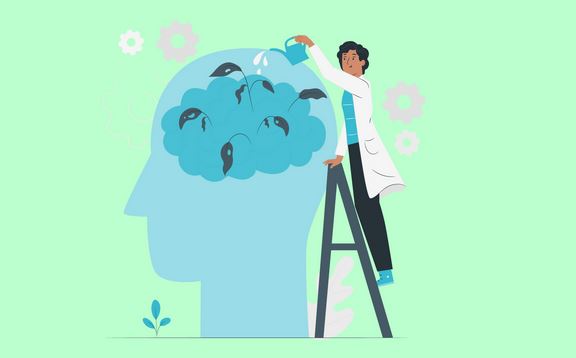The benefits of regular exercise for mental health | |

| |
Regular exercise is not only essential for physical health but also has profound effects on mental well-being. Engaging in physical activity on a consistent basis can have a positive impact on various aspects of mental health, including mood, stress reduction, and overall psychological well-being. In this guide, we will explore the benefits of regular exercise for mental health and provide insights into how you can incorporate exercise into your daily routine to enhance your well-being. The Connection Between Exercise and Mental HealthExercise has a powerful influence on mental health due to several physiological and psychological factors. Here are some key benefits of regular exercise: 1. Mood EnhancementEngaging in exercise releases endorphins, also known as "feel-good" hormones, in the brain. These chemicals act as natural mood boosters and can help alleviate symptoms of depression, anxiety, and stress. Regular exercise can contribute to a more positive and uplifted mood. 2. Stress ReductionExercise serves as an effective stress management tool. Physical activity helps reduce the production of stress hormones, such as cortisol, while stimulating the production of endorphins. This dual effect helps lower stress levels, improve resilience, and promote a sense of calm and relaxation. 3. Improved Cognitive FunctionRegular exercise has been shown to enhance cognitive function and memory. Physical activity increases blood flow to the brain, promoting the growth of new brain cells and improving cognitive performance. Exercise can boost focus, attention, and overall mental clarity. 4. Increased Self-esteemEngaging in regular exercise can boost self-esteem and self-confidence. Accomplishing fitness goals, improving physical strength and endurance, and experiencing positive changes in body composition can enhance self-perception and overall self-worth. 5. Better Sleep QualityExercise has a positive impact on sleep quality, which is essential for optimal mental health. Physical activity can help regulate sleep patterns, improve sleep duration, and enhance sleep quality, leading to increased energy levels and overall well-being. Incorporating Exercise into Your RoutineTo reap the mental health benefits of exercise, it's important to establish a consistent routine. Here are some tips to help you incorporate exercise into your daily life: 1. Find Activities You EnjoyChoose activities that you genuinely enjoy. Whether it's jogging, dancing, swimming, cycling, or practicing yoga, finding activities that you look forward to will increase your motivation and make exercise more enjoyable. 2. Start Small and Gradually IncreaseIf you're new to exercise, start with manageable goals and gradually increase the duration and intensity of your workouts. Listen to your body and give yourself time to adapt. Consistency is key, so aim for regular exercise sessions rather than sporadic intense workouts. 3. Make It a HabitSchedule your exercise sessions like any other important appointment. Set aside dedicated time for physical activity and make it a non-negotiable part of your daily routine. Treat exercise as an act of self-care and prioritize your mental well-being. 4. Mix It UpAvoid monotony by incorporating a variety of exercises into your routine. This not only keeps things interesting but also challenges different muscle groups and prevents plateaus. Explore different forms of exercise and switch between cardio, strength training, and flexibility workouts. 5. Seek Social SupportExercise with friends, join group fitness classes, or find online communities where you can connect with like-minded individuals. Having social support and accountability can increase your motivation and make exercise a more enjoyable and social experience. Frequently Asked Questions (FAQs)Q: How much exercise do I need to experience mental health benefits?A: The recommended guidelines suggest at least 150 minutes of moderate-intensity aerobic exercise or 75 minutes of vigorous-intensity exercise per week for overall health benefits, including mental well-being. However, even smaller amounts of exercise can still have a positive impact on mental health. Q: Can I exercise if I have a mental health condition?A: In many cases, exercise can be beneficial for individuals with mental health conditions. However, it's important to consult with a healthcare professional or mental health expert to determine the most appropriate exercise routine based on your individual needs and circumstances. Q: What if I don't enjoy traditional forms of exercise?A: Physical activity doesn't have to be limited to traditional exercises. Find activities that you genuinely enjoy and that get your body moving. It could be dancing, hiking, gardening, or even playing a sport. The key is to find something that brings you joy and keeps you active. ConclusionIncorporating regular exercise into your life can be a powerful tool for improving your mental health and well-being. The benefits extend beyond physical fitness, as exercise positively impacts mood, stress levels, cognitive function, self-esteem, and sleep quality. By finding activities you enjoy, establishing a routine, and seeking social support, you can make exercise a sustainable and enjoyable part of your lifestyle. Remember, small steps can lead to significant positive changes in your mental health. Embrace the power of movement and experience the transformative effects on your overall well-being. | |
| Category: Wellness | |
| Total comments: 0 | |
 |
| Tips for Preventing Makeup Transfer |
 |
| The Art of Creating the Perfect Brows |
 |
| Exploring the world of high-end designer fashion |
 |
| How to Protect Your Hair from Chlorine and Saltwater |
 |
| How to Choose the Right Makeup for a Photoshoot |
 |
| Iconic fashion moments in film and television |
 |
| How to dress for different climates and seasons |
 |
| How to incorporate mindfulness into everyday activities |
 |
| 5 Essential Makeup Products for Travel |
